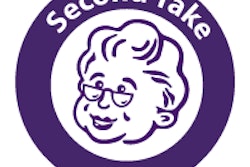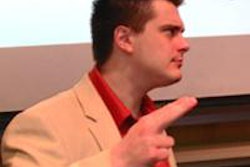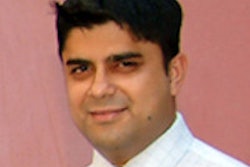Stung by its own board recall controversy, the American Board of Internal Medicine (ABIM) has joined the chorus of U.S. medical boards opposing the use of exam "recalls" to prepare for board exams. A new article in Mayo Clinic Proceedings condemns recalls as a practice that threatens the integrity of medicine.
The article and accompanying ABIM editorial address the firestorm of controversy that erupted in 2012, when CNN ran a series of stories on the "pervasive" practice of board candidates using questions recalled from previous tests to prepare for their exams. While the practice has been commonplace in radiology and other medical specialties, it was labeled as "cheating" in the story by executives with the American Board of Radiology (ABR).
The article by Dr. Gregory Ruhnke, from the University of Chicago, and Dr. David Doukas, from the University of Louisville in Kentucky, takes aim at many of the arguments used to justify board recalls, but it also includes recommendations for the developers of board exams to potentially reduce the urge to cheat (Mayo Clin Proc, May 2013, Vo. 88:5, pp. 438-441 [commentary], pp. 425-427 [editorial]).
An 'embarrassing' discovery
Like radiology and dermatology before it, internal medicine has joined the ranks of medical specialties officially embarrassed to discover that recalls have been used in test preparation materials, ABIM's Dr. Christine Cassel and colleagues wrote in the editorial accompanying the article.
ABIM discovered the problem in connection with a New Jersey physician named Dr. Rajender Arora, who conducted the Arora Board Review to prepare students to take the internal medicine certification exam. Arora's review included recalls of actual exam questions, according to ABIM. The board subsequently removed the questions from its exam and suspended or revoked the certification of 139 physicians found to be disclosing or soliciting exam questions.
The editorial lays out ABIM's position against board recalls and emphasizes "swift and serious consequences" for physicians who "compromise the integrity of the ABIM examination process."
Cheating creates unfairness
As ABR did in 2012, ABIM likens exam recalls to cheating. Cheating in education, as in sports, is disdained by society because it creates unfairness between competitors, wrote Ruhnke and Doukas. The notion expressed by some recall defenders in the CNN series -- that exam recalls no longer convey an unfair advantage because they are so pervasive -- actually represents the worst kind of cheating.
"Cheating of this nature casts an overarching ethical pall over the moral formation and integrity of physicians, eroding public trust in professional practice, teaching, and scholarship," they wrote. "Cheating on examinations in medical school correlates with falsifying information in a patient's medical record"
In the article, Ruhnke and Doukas take on common perceptions among students and residents that "everyone" was sharing test information with others or studying from test questions that others had provided, rendering the practice "ethical enough." Many recall users had the idea that getting through the course and passing the exam was more important than the culture of integrity and professionalism that it betrays.
"From the patient's perspective, physicians should be certified on the basis of a valid assessment of the knowledge requisite to provide high-quality care," they wrote. "If patients cannot trust the knowledge that board certification is expected to measure, the medical profession loses the public's trust and confidence."
Defining cheating
Ruhnke and Doukas also spell out what at first glance can seem like a fine line between acceptable test preparation and cheating, calling distinction of the two "crucial."
"Historical test questions are routinely used throughout higher education, and recent examination experience is commonly used to create focused study materials," they noted, describing the process used to create parts of the American College of Physicians Medical Self-Knowledge Assessment Program.
"Using a focused study guide and sample questions created with examinees' input bears some similarity to using practice questions that may have been on a recent examination as a vehicle for targeted learning," the authors wrote. "The difference lies in the detail and specificity of the information conveyed to future examinees." And at a minimum, copying questions violates the copyright of the exams, they added.
The ABIM website provides its exam takers with detailed information on topics of the exam and areas of focus. The information includes an "examination blueprint" for each of 19 exams the organization offers.
The blueprints available to residents and fellows include the content areas covered and their relative percentages, and the approximate number of questions in each area within a typical examination. These blueprints and the examinations are prepared by experts with a range of expertise, so they represent the best understanding of the specialty and subspecialties concerning what a physician should know to be board certified.
Similarly, ABR's guidelines note that it is acceptable in the course of test preparation instruction to say there is a lot of one topic on the exam and very little of another, as long as the advice doesn't include specific exam questions.
The need to cheat
What drives the need to cheat on an exam? Lots of things, according to Ruhnke and Doukas, from natural competitiveness to the ubiquity of information available on the Internet. In radiology, the team saw one motivating factor in the abundance of obscure information rarely used in practice.
"The difficult content of the radiology physics examination is one driving force of the behavior described," they wrote. "The professions have long had requirements for entry that are not necessarily critical for practice, as did their antecedent craft guilds. For most physicians, the exhaustive study of biochemistry and pharmacology is a rite of passage based on knowledge rarely used in patient care."
The doctors interviewed by CNN in 2012 expressed the idea that the use of recall questions "arises from the necessity to demonstrate proficiency of arcane material considered by many as unimportant for practicing radiologists," Ruhnke and Doukas wrote. "Consistent with this perspective, assignment and test content that medical students view as unnecessary for clinical care makes them more likely to cheat."
The use of esoteric or irrelevant questions in exams is a hazing ritual that should be dispensed with, the authors wrote. Similarly, banning the reuse of test questions would reduce the motivation to reproduce questions verbatim, though it might have the unintended goal of threatening the "statistical reliability and consistency of passing standards," they wrote.
Dishonest behavior, which is surprisingly common among physicians in training, is driven most strongly by poorly designed test questions and peer behavior, they wrote. But the notion that cheating is acceptable "because everyone does it" should never be used as an excuse, and such academic dishonesty is akin to falsifying patient records, with critical implications for the profession.
"To limit unethical behavior, examinations should test material highly relevant for the activities that will be endorsed by graduation or certification," they concluded. "It is also critical to create institutional cultures that make academic dishonesty unacceptable and emphasize the respect to be accorded professionals with high moral standards."
The certifying exam is one of the first tests of professionalism for physicians, Cassel et al wrote for ABIM. " 'Everyone does it' is never a sufficient answer when faced with an ethical dilemma, and if the profession is to meet its societal obligation to uphold the highest ethical standards, we most certainly cannot accept such an excuse from board-certified physicians."


















